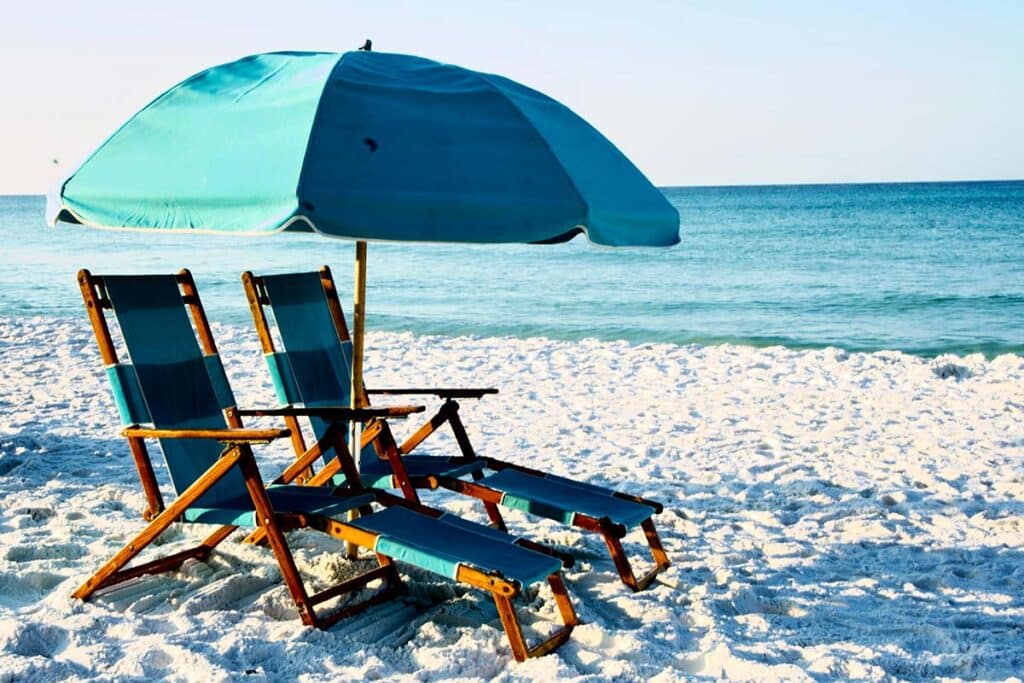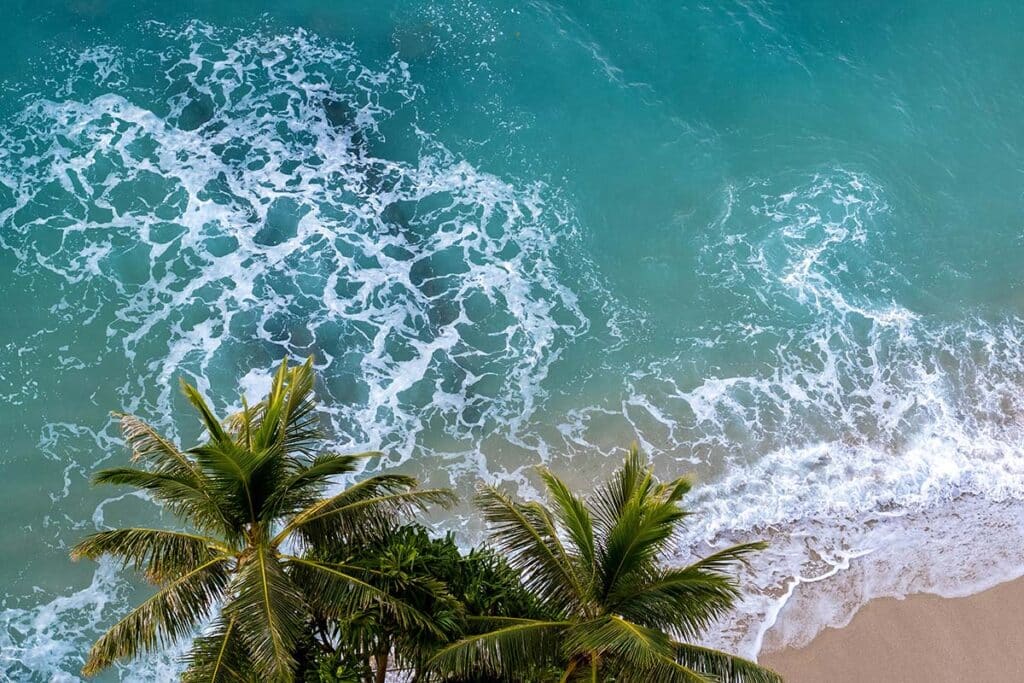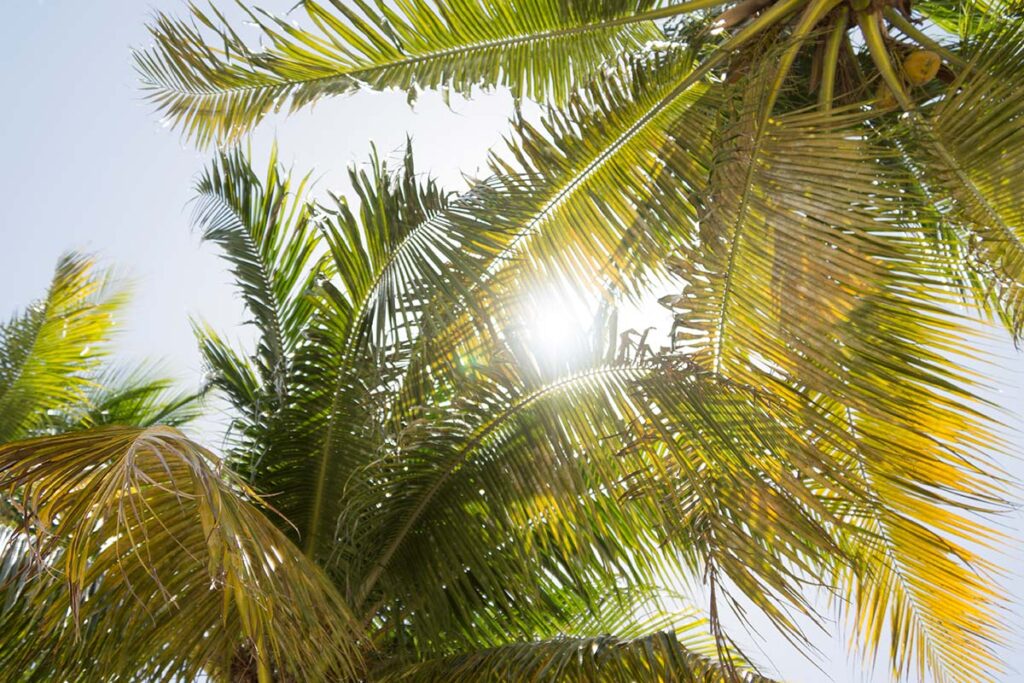As two states with excellent beaches and assisted living facilities, it isn’t surprising for many to wonder and ask, “Is Florida more humid than Hawaii?” After all, a state’s climate or the weather is essential when choosing where you want to spend your retirement years. That said, it’s always best to live in an area with a humidity level you’re most comfortable with and is best for your health.
So, is Florida more humid than Hawaii? Although each state’s humidity levels depend on the specific season of the year, overall, Florida is more humid than Hawaii. This conclusion is based on years of collected data using equipment or tools that measure absolute and relative humidity.
As straightforward as the answer might be, there is still so much information to digest if you really want to have a good grasp of what to expect in either state. So, let’s discuss and answer common questions regarding the states’ humidity indices, climate, and more.

Florida vs. Hawaii’s Humidity – A Quick Comparison
Several factors, such as temperature and water vapor, come into play when discussing a particular area’s humidity level. Hence, to understand the yes answer to “Is Florida more humid than Hawaii?“, here are some facts that you need to make a note of:
Is Hawaii or Florida closer to the Equator?
A particular state’s proximity to the equator is a good indicator of how much sun it gets in a year or how long the sun is out during the day. It’s also one factor contributing to the area’s hotness and coldness.
With that in mind, Hawaii’s southernmost tip has around 19 degrees North latitude, or its distance from the equator is approximately 1,470 miles (2367 kilometers). On the other hand, Florida has approximately 25.5 degrees North latitude, or its distance from the equator is estimated at 6,923 miles (4302 kilometers).
Based on the numbers, you can clearly conclude that Hawaii is closer to the equator than Florida. In fact, it is the state in the U.S. that’s closest to the equator.
Fun Fact: Since Hawaii is the only state located outside the North American continent, Florida will take the number one spot if we only consider the actual continental states.
Is Hawaii or Florida warmer?
The two states’ proximity to the equator makes it easy to assume that Hawaii is warmer than Florida. Surprisingly, it isn’t since Florida is a bit warmer. Well, it wouldn’t be called the Sunshine State and won’t be home to some of the best fishing charters for nothing, right?
For decades, the average annual temperature in Florida has ranged from 70 to 79 degrees Fahrenheit, depending on the season. On the contrary, Hawaii reaches around 65 to 75 degrees Fahrenheit.
The latest 2022 data even show that Florida recorded a daytime temperature higher than the mean contiguous USA temperature. Likewise, its average nighttime temperature is slightly higher than the recorded 20th-century average temperature. As such, currently, Florida is the sixth warmest state in the country, both during the day and night.
Another proof that Florida is warmer than Hawaii is that five of its cities, Miami, Orlando, Key West, Tampa, and Jacksonville, are almost always included in the list of the hottest cities in the country. Meanwhile, Hawaii’s capital city, Honolulu, is the only one you’ll usually find on the same list.
How humid is Florida compared to Hawaii?
We know that the answer to “Is Florida more humid than Hawaii?” is a yes, but to what extent? Like with temperature, we can only give you a clear picture by giving you numbers; that is, each state’s relative humidity index in percentages.
With that said, Florida’s recorded year-round humidity usually averages around 74.50%, while Hawaii is at 73.30%. As the world becomes warmer, these numbers are now around 77.05% and 74.64%, respectively, giving you a difference in relative humidity of more than 3%.
Why is Florida more humid than Hawaii?
Florida and Hawaii have humid climates mainly because they’re coastal states. The former is part of the Atlantic (East) and Gulf Coasts, while the latter is part of the Pacific (West) Coast.
How does this relate to humidity? Well, the bodies of water receive the sun’s heat throughout the day, warming them to a specific temperature. Scientifically speaking, warm water leads to water vapor production due to evaporation.
As the water vapor increases, the amount of air moisture increases. The warm wind blowing from the sea or ocean then blows this moisture to the land, leading to a humid climate.
With that in mind, although both are coastal states, Florida has a larger coastline, approximately 1,350 miles (2172.61 km), than Hawaii, which has a combined coastline of 750 miles (1207.01 km). It means a higher amount of warm water evaporates in Florida than in Hawaii, so there’s higher air moisture. This is the main reason it’s more humid in Florida than in Hawaii.
FAQs About Florida and Hawaii’s Humidity

Now you understand the difference between the two states’ humidity and why one is more humid than the other. However, some of you are probably still undecided and might have a few questions regarding each state’s humidity running through your heads.
Here are common questions that will help you become more confident to pack your durable, easy-to-carry, secure travel bags (view on Amazon) and visit or move to Hawaii or Florida.
1. Does Hawaii have high humidity?
With a year-round above-average humidity index, Hawaii is a mildly humid state that most find comfortable. Add that to the fact that the humidity decreases in the afternoon and night.
That said, August, the least humid month, is the best time of the year to visit Hawaii if you can’t stand such a humidity index. On the other hand, December is the most humid month in Hawaii.
2. Which is the least humid Island in Hawaii?
If permanently moving and living in Hawaii is your goal and you don’t prefer moderate humidity, you can opt for the least humid parts of the state. So, on which Hawaiian island should you move to?
There is really no exact answer because the humidity level is different from one island to another. One Hawaiian island can also have different humidity indices, depending on the town’s specific geographical location.
Why is this so? Remember that warm wind plays a significant role in relative humidity. In Hawaii, it blows from the east to the west. Thus, the west side of a particular island is almost always more humid than the eastern portion.
We must also consider elevation; the higher the area, the lower the humidity, thanks to the colder trade winds.
With those in mind, the least humid county and city in Hawaii are Waimea, Big Island and Kula, Maui, respectively.
3. Is Florida the most humid state?
No, Florida isn’t the most humid in the country but has long been part of the top 10 most humid states, while some of its cities are usually part of the 20 most humid cities in the USA. Current data show that Iowa is the most humid state, with a recorded average relative humidity of 82.01%.
4. What part of Florida is most like Hawaii?
If you want to have the best of both states, the Florida Keys is the area that is closely comparable to Hawaii. Not only does it offer several beaches with white sand and warm but calm waters. The Florida Keys is also known for its coral reefs that you may want to explore wearing a complete set of high-quality snorkeling or diving gear (view on Amazon). Even better, the winds are almost always calm or not too strong.
In terms of humidity, the annual average ranges from around 60% to 73%, which is close to Hawaii’s. Note that Florida Keys’ least humid month is usually April, while the most humid one is in December.
Vero Beach ranks second because it also has white sandy beaches and has long been named as a city in Florida with the best climate or weather. During its most humid month, September, it recorded a relative humidity of 72%, while its least humid month, March, is only around 58%.
Living Comfortably Amidst the Humidity and Heat – Bonus Tips

At this point, you have probably already decided which between Florida and Hawaii is perfect for you, whether you’re visiting or moving on your own, with a loved one, or the whole family. However, as both are warm and humid states, as a bonus, here are some tips on how you can be comfortable, especially during the most humid and hottest months:
Invest in Good Moisture-Wicking Clothing
Normally, our sweat evaporates to help our body maintain a healthy temperature. The problem with a humid climate is that this process is either slower or completely halted.
Health professionals suggest that it’s best to wear clothes made of moisture-wicking fabric, namely polyester, polypropylene, merino wool, wool, nylon, micro modal, and bamboo. That’s because these fabrics can help move sweat away from our bodies.
Expert Tip: Consider spraying your clothes with water when it’s too humid or hot. The evaporating water will help cool off your skin and lower your body temperature.
Always Carry a Bottle of Water
The most obvious advice is always to have a bottle of water ready to help replenish the amount of water lost from sweating. Not only will it prevent dehydration, but drinking water can also help prevent heatstroke.
Consider having a handy sling bag (view on Amazon) that can keep your valuables safe but still accommodate your water bottle. This way, you can walk around with both hands free to enjoy any activities you plan on doing for the day.
Don’t Forget Your Sun Protection!
Most of us aren’t fond of wearing sunblock, but it’s one of your best protections against the sun’s harmful rays. It will help you maintain good skin and prevent health illnesses resulting from excessive sun exposure. You can also use an anti-UV umbrella (view on Amazon) and sunglasses for extra protection.
Is Florida More Humid Than Hawaii – In Conclusion
As among the southernmost states in the USA, Hawaii and Florida boast year-round warm climates or weather. You either love or hate it, as summer can be scorching hot. Both also have above-average humid levels, so expect some sticky sweat when you walk around during their most humid months.
In comparison, Hawaii is mildly humid, while Florida is moderately humid. Nonetheless, you won’t expect the same humidity level throughout the year in each state.
Keep all these in mind when deciding where to move for good for your retirement. Good luck, and don’t forget to take extra precautions when staying out during the most humid days.
